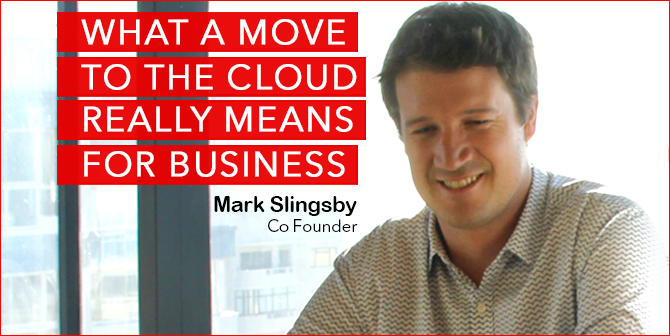What a move to the Cloud really means for business
That magic space called ‘the Cloud’
The ‘Cloud’ is such a massive word/concept that, until recently, in my mind, it could only exist in an unreachable place, far up in the heavens, and more and more I have found myself wondering, “what exactly is the Cloud?” and what does it really mean for businesses?
It is for this very reason, that when I was kindly offered an opportunity to spend some time with the man behind RSAWEB’s technical innovation; Mark Slingsby, to learn more about the Cloud and how RSAWEB’s three offerings can assist businesses, I naturally jumped on it.
Mark Slingsby, the co-founder of RSAWEB, is a bona fide technology entrepreneur – between Rob Gilmour and Mark they have successfully created multiple businesses, all centred around telecoms, the Internet and connectivity. The pair are driven by their urge to continuously push boundaries, resulting in them leading the changes they personally want to see in their business and other South African businesses.
Defining the Cloud
According to Wikipedia: “Cloud computing is a recently evolved computing terminology or metaphor based on utility and consumption of computing resources.” (Source: Wikipedia ) Delving into that description, Mark explains that “Cloud systems use API’s to connect to numerous elements (computing resources, storage, programs, databases, applications, documents, etc.) through the use of an API. Everything can connect to everything else with an API, abstracting the complexity away from consuming these resources. For example, Marks explains; “there is a program called ‘IFTTT: If this then that’ that allows you to automate a number of systems in one go. You can simply tell ‘IFTTT’ that if you load an image file into your Dropbox, then you would like it to sync with your phone automatically”. Mark continues; “this simple program shows how, through the use of the Cloud and a standard API one can ultimately make use of technology, in a simpler, better, faster way.” This is just a simple example of the subtle and fundamental ways in which the Cloud allows us to weave technology more deeply into everyday business.
How the Cloud is changing the way we do business
One of the main changes RSAWEB are driving at the moment, is the move towards a more ‘Cloud-centric’ office environment. Mark explains that in order to set up a ‘Cloud-centric office’, “the main change that needs to be made is the way in which a company looks at data – how it is used, where is stored and how it is accessed.”
Being a Cloud-centric office, RSAWEB has had to change a number of structures themselves, starting with the fact that no data is sitting in the actual offices. “Everything is stored on Cloud Servers and applications and with this change comes the need to retool your business. No longer can one make use of desktop applications, instead we need to move across to web applications and businesses need to re-architect themselves to the web and then change the way the employees work.” Mark continues; “enabling employees to save their files onto remote servers and systems via programs solves one of the biggest problems faced by companies to date: how do they share information amongst employees and customers?”
Connectivity plays a huge role
The key to making this massive change within in an office is connectivity. “In our new offices, there is literally a hole in the wall where the Fibre cable comes in and that is it. If you go to look at the server room you will find that the racks are empty, as the data is stored elsewhere. One is no longer hamstrung in having to connect to a server sitting in the office…” Mark says. However, this change is only possible due to the use of products and infrastructure such as RSAWEB’s CityFibre that provides fast, efficient Internet that allows business to actually do things like video conferencing, file sharing and remote accessing files quickly and easily.
Changing the way we develop
From a developer’s perspective, one can build things faster, more efficiently and with fewer bugs, enabling businesses to launch products faster, grow faster and ultimately be more competitive in the market place. Through the use of products such as Flex Cloud and Virtual Data Centres, developers are able to write their own software in a new and exciting way by using new methodologies and by embracing ‘Continuous Delivery’ and a DevOps organisational culture. Mark notes, “quite simply, you can now write it differently. Through the Cloud, developers can now build software and actually check that it is working properly, as they go!” And it is this change that is set to make yet another massive impact on the way we do business. “If you have a business where your product costs you less to produce, takes less time to put together and works better then, at the end of the day, you win.”
Adopting a change in mentality
The move to Cloud systems ultimately enables the IT department within a business to move away from managing in-house resources such as server rooms and UPSes and from the constant time demand that that entails, freeing up their time and allowing the IT team to move into a DevOps role. This may require changing or retooling your people. By removing the need to constantly manage and check systems with a move on to the Cloud, an IT department is given a new lease on life, and is suddenly able to deliver things into the business more efficiently, allowing the business to be more agile and reducing the cost incurred for IT. As Mark says, “so you get more bang for your buck and can now spend more money on building a better customer experience.”



